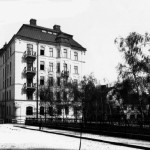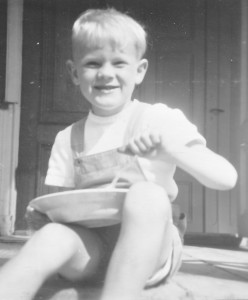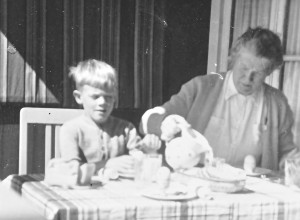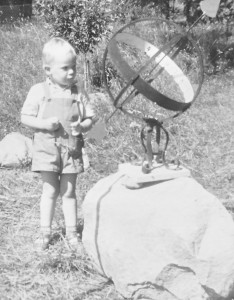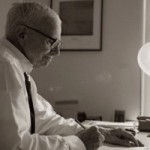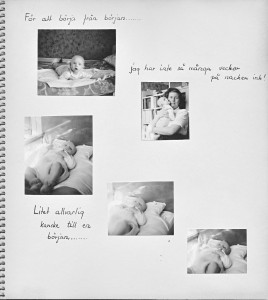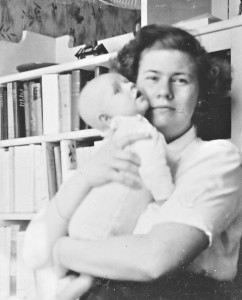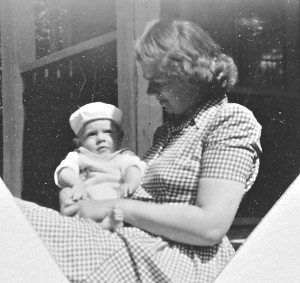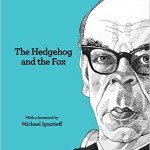My PhD student Anette Stenslund has made me aware of atmospheric smell as an important dimension in our relation to the world.

In her dissertation, which she defended last week, Anette discusses smell in the hospital in terms of ‘atmosphere’ — i.e. not as a perception of specific olfactory stimuli, but as a phenomenological apprehension of situated smell.
Anette’s work is important for understanding the synaesthetic qualities of museum exhibitions (a topic I will return to later). But the notion of atmospheric smell could also add an interesting dimension to autobiographical studies of the individuals’ memory of the past. Here’s an example from my own life-history.
When I immatriculated at Stockholm University 50 years ago, I chose chemistry as my first subject. The chemistry programme began with a month-long intensive propaedeutic course, where you should learn basic stoichiometry and the whole periodic table by heart. It was a kind of rite of passage that sorted out the less devoted students and gave the rest of us license to enter the holy laboratories — inorganic chemistry and physical chemistry in the autumn, and organic chemistry in the spring.
What I remember best from my year of chemistry studies is the social life and the feeling of being in the lab. We were around 12 students in each lab group, having an intense social life together. We met at 8am for breakfast and gossip in the canteen before the morning lectures began, and then spent 6-8 hours together in the lab, two and two at each bench. We often had dinner together, comparing lab notes, before going home to write the daily lab reports and read the textbooks (and getting 6-7 hours of sleep before the next hard day). It felt more like a voluntary boot camp than a school.
Chemistry taught me that science is about abstract concepts, experiments and precise observations. We spent months learning to weigh substances, calibrate pipettes and calculate errors of measurement. There was also some heavy theory (I remember struggling hard with thermodynamics and quantum chemistry). But what lingers most strongly in my memory is that it was an intensely sensuous study (today, maybe it’s all learnt in front of the computer screen?).
All the senses were involved. I vividly remember the beautiful colours of some of the (mostly organic) stuffs we produced and the click-click-click sounds of the Geiger counter. Almost everything we did involved manipulating something, including instruments, hands-on.
And above it all hovered the smell. I remember it as if all substances we used and produced smelled of something. Ammonia, hydrochloric acid, nitrous gases, bromine, hydrogen sulphide, and a whole array of carboxylic acids, ethers, aldehydes and ketones — a constant bombardement with specific smells, many of them pleasant, and sometimes dangerous, some foul, but nonetheless often harmless, at least in small concentrations.
The lasting impression in my memory of the year 1965-66 is not the specific smells of specific substances, however. What I remember best is the unspecific smell atmosphere of the laboratories — ranging from a vague sense of bakelite and vacuum tubes in the physical chemistry room to the heavily odorous organic chemistry lab, which not even the most efficient fume hoods could remove and which impregnated the lab coats as well.
That experience has followed me throughout life. Whenever I see an image of a organic chemistry lab, I can easily recollect its unspecific odorous atmosphere — which is almost as ‘tangible’ as the visual impression of the room.
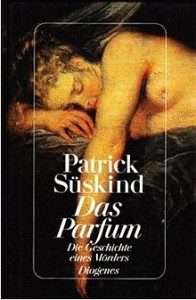 Would it be possible to write a smell memoir? Something akin to the fictional scent biography of Jean-Baptiste Grenouille that Patrick Süskind created in Das Parfum, but not fictional and not focused on specific odours: more in the form of an autobiographical report of one’s own life in terms of the different kinds smell atmospheres one has encountered throughout life. Would it be too monotonous? Too emasculated? Too vague and too short? All these probably. But it would nevertheless be an interesting exercise to use that kind of analytic perspective on one’s own life as a complement to other and richer analytic perspectives.
Would it be possible to write a smell memoir? Something akin to the fictional scent biography of Jean-Baptiste Grenouille that Patrick Süskind created in Das Parfum, but not fictional and not focused on specific odours: more in the form of an autobiographical report of one’s own life in terms of the different kinds smell atmospheres one has encountered throughout life. Would it be too monotonous? Too emasculated? Too vague and too short? All these probably. But it would nevertheless be an interesting exercise to use that kind of analytic perspective on one’s own life as a complement to other and richer analytic perspectives.
Under all circumstances it would be interesting to develop the notion of the atmospheric qualities of memory further. Any tips about literature or ideas how to proceed?
Note: The smell in the chemistry lab has been discussed by others; for example, David Lowe has written about the smell in contemporary organic chemistry labs, and historical aspects of smell in the chemistry laboratory has been studied by the Uppsala historian of science Anders Lundgren. But to my best knowledge, the notion of atmospheric smell as a dimension of our memory of the past has not been treated (whereas memories of specific smells are of course a commonplace topic, not least due to Marcel Proust’s famous Madeleine cake experience and its impact on subsequent generations of scholars).

